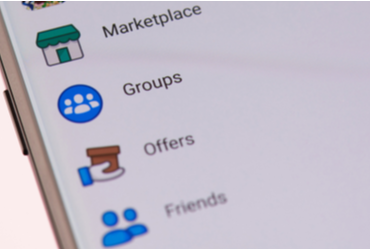Visual marketing is seen as a massive transition in social media, shifting people to use creative images that connect with peoples emotions, strike chords with viewers and resonate across different cultures, drawing people in with a plethora of emotions that would otherwise require many, many paragraphs to describe to the user.
According to Facebook stats, a photo posted attracts 39% more interaction than a well-written post making the same exact statement as the image. This could perhaps be a direct result of the global expansion of social media, whereby language barriers are now a problem that photo-blogging aims to overcome.
With 1.11 billion users, Facebook is by far the biggest social network. However, Facebook reached the 100 million users mark four years after its launch, whilst Instagram has signed up 130 million users since its launch in October 2010, making it the fastest growing social network. Instagram’s popularity is quickly rising, along with its user activity; stats suggest that an average of 45 million new pictures are posted on a daily basis. Companies are certainly aware of the marketing potential in this new application that has revolutionized social interaction over the last couple of years, leading to many big brands jumping on board.
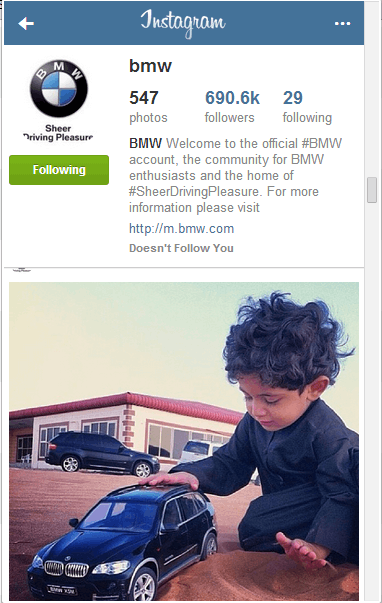
How are these brands benefiting from Instagram?
Brand building
Unlike other social media tools that push out marketing messages, Instagram can be used to build a personality for the brand by posting pictures of anything that the brand wants to be associated with. For instance, to create the personality of a traditional British brand, Burberry’s Instagram profile is filled with cultural images of the most historically significant areas in London.
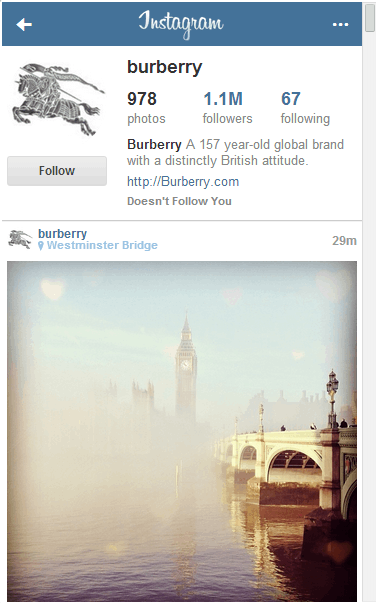
Creative methods to showcase products
Despite the perception that posting pictures of different items on your stock-list may seem quite repetitive and somewhat monotonic, it works for some. Pinkydust for example has made a significant amount of cookie butter sales on Instagram (pictured below). However, many companies adopted more creative ways of pushing their brand out there. McDonald’s and Starbucks are good examples of brands that promote their products using eye-catching pictures that capture the moment, making the consumer relate to the brands ‘Instagram personality’ and therefore more likely to share the image and tag a friend to it.

PR stunts/competitions
Over the last few months, many different brands have gained a massive increase in their number of followers through starting conversations about the brand as part of brand competitions.
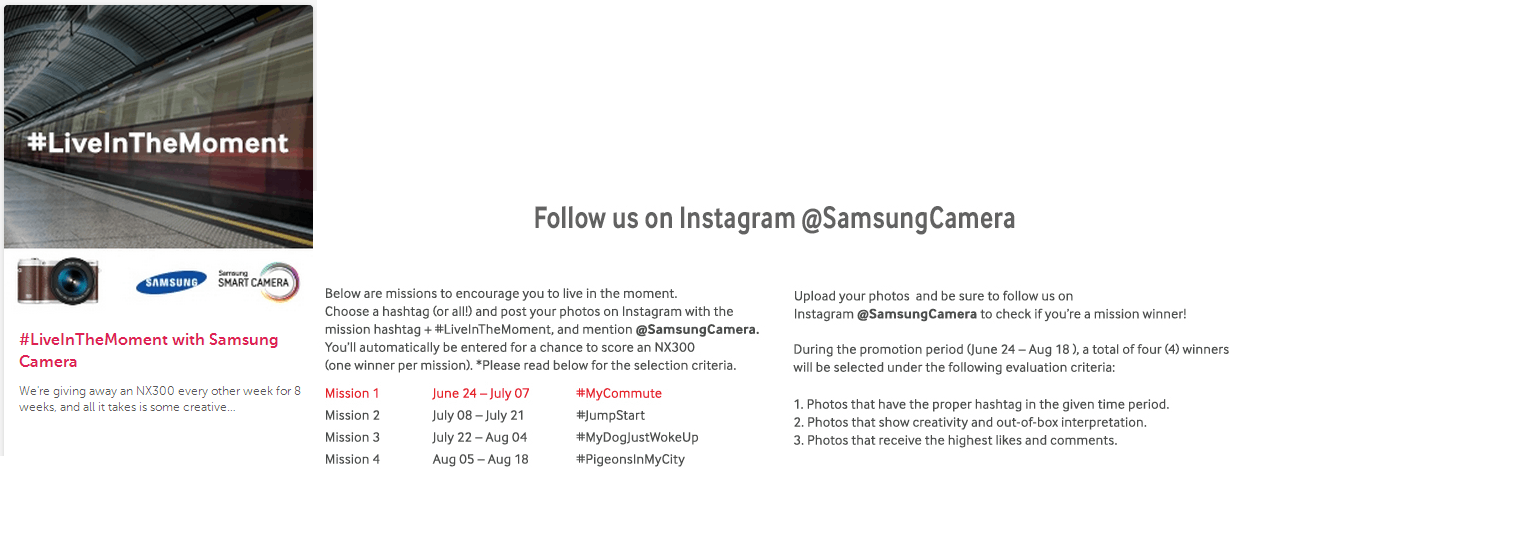
These competitions increase the popularity of the brand through setting a simple rule that, in order to take part in the competition, the pictures you post must include a hashtag and a @tag of the brand within the description, thus making all of your followers aware of the brand and increasing the number of potential new followers of the brand.
Using #Hashtags
People search for content that suits their interests using hashtags. When a hashtag is posted by a large enough number of users in a short period of time, it becomes a trend and starts to appear on the newsfeeds of users that Instagram think would find these trends interesting.
A really good example of this is ASOS Instagram account, setting new trends on a regular basis and getting their customers to post selfies of them wearing ASOS clothes and tagging ASOS into the description.
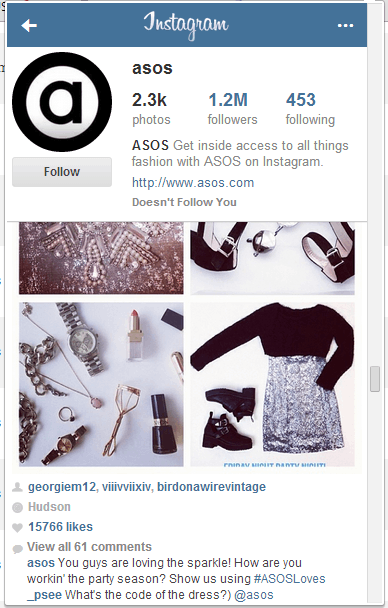
The #ASOSLoves campaign started on the 29th of November 2013 and, within 11 days, trended as a result of over 40,000 pictures posted using that hashtag. Through these creative campaigns, ASOS have built an impressive list of 1.2 million followers.


